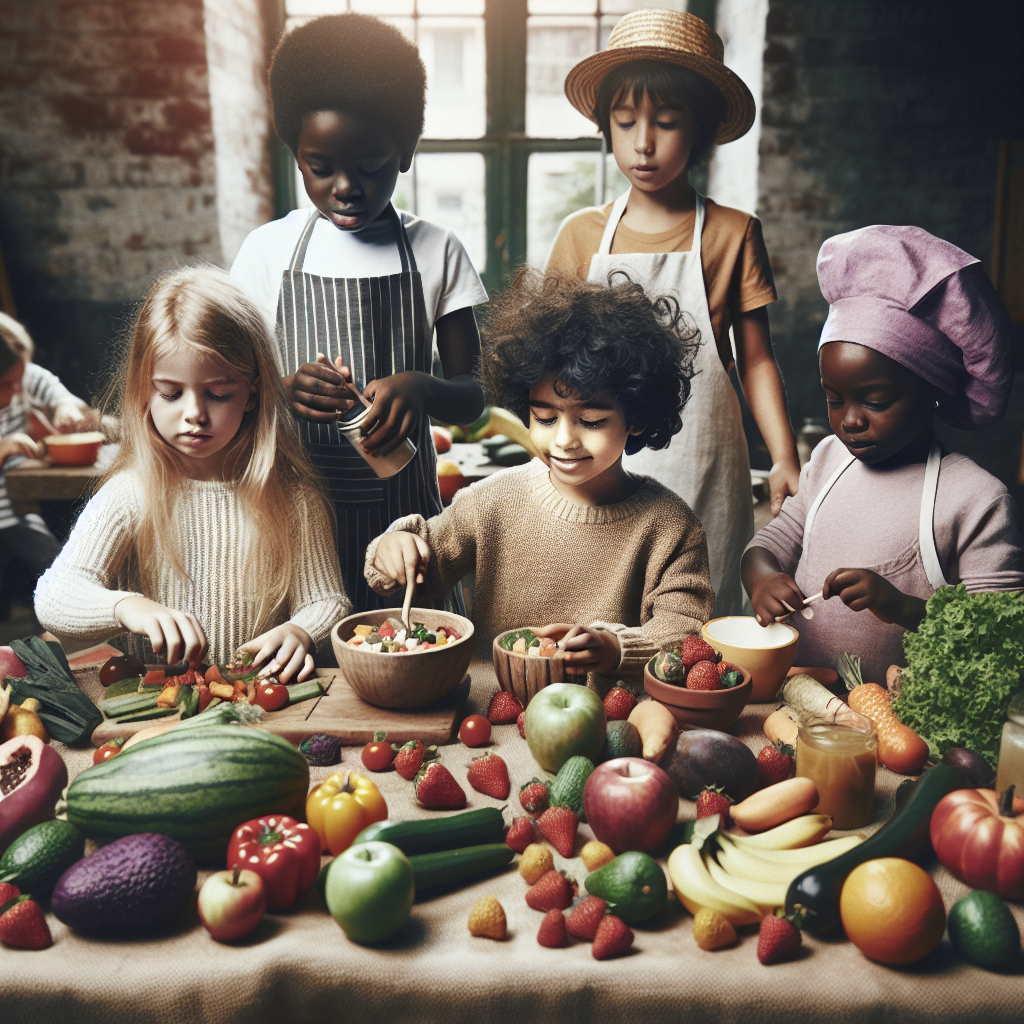Understanding the Importance of Organic Nutrition
Why Organic Matters
When I first heard about organic food, I was a bit skeptical. What’s the big deal? But as I started digging deeper, it became clear that organic food is less about trends and more about the health of my kids. Organic foods are grown without synthetic pesticides and fertilizers. That means I can feel good about what I’m putting on their plates.
The fact that organic farming also respects animal welfare and environmental sustainability made a huge difference in my perspective. It’s not just what my kids eat, but also how it impacts the world around them. Teaching my kids about this connection early on has helped them appreciate food on a much deeper level.
One personal experience that solidified my commitment to organic nutrition was seeing how much more energetic and lively my kids were after eating whole, unprocessed foods. Their moods improved, and I could finally keep up with them! It’s proof that nutrition can have a significant impact on their overall health and happiness.
Building Healthy Meal Plans
Incorporating Variety
Meal planning can feel overwhelming, but I’ve found that incorporating a range of organic foods doesn’t have to be daunting! I usually focus on including colorful fruits and veggies in each meal. Not only does it make the plate appealing, but it also ensures a variety of nutrients for little growing bodies.
One of my favorite hacks? Involve the kids! When they help pick out fruits and veggies at the grocery store or farmer’s market, they’re much more likely to eat what’s on the table. I love hearing their opinions, and it builds a sense of ownership over their meals.
You can also keep it simple! I like to have a couple of go-to organic recipes that my family loves. Spaghetti with homemade tomato sauce packed with fresh veggies has become a staple in our home. It’s quick, easy, and everyone participates in the cooking process!
Setting Positive Examples
Be a Role Model
Your kids are always watching you, whether you realize it or not. If you practice healthy eating, they’ll likely follow suit. I’ve noticed that when I choose organic snacks over chips or soda, my kids gradually reach for the same choices. It’s a small but powerful way to instill good habits.
I also try to share my own excitement about trying new organic foods. Whether it’s a funky vegetable or a fruit we’ve never tried, sharing my experiences encourages them to be adventurous in their eating habits. It’s all about building a fun and open environment when it comes to food!
Moreover, I try to show them that healthy eating isn’t about restrictions; it’s about enjoying the process. If we make our meals together and celebrate trying new things, it doesn’t feel like a chore but rather an adventure we take as a family.
Encouraging Healthy Snacking
Creating a Snack Station
One of the best things I’ve done is create a designated snack station in our kitchen filled with organic options. Think about it: when kids get hungry, they usually reach for whatever’s most accessible. By providing healthy snacks like organic trail mix, fruit, and whole grain crackers, it becomes a no-brainer for them!
Get Certified Organic Whole Food Nutrition – Nutrient Dense Supplement
I also love to mix it up! Sometimes, we have snack-making afternoons where we create our own healthy snacks together, like making energy balls with oats, peanut butter, and organic honey. It’s a great way to bond, and they learn how fun healthy eating can be.
Letting them pick their own snacks from the fridge or pantry not only gives them choices but also makes them feel involved in their food decisions. Plus, it’s a fantastic way to teach them about moderation and balance while enjoying their snacks!
Understanding Nutritional Labels
Making Informed Choices
Reading nutritional labels can feel like walking into a foreign language class at first, but once you get the hang of it, it’s pretty eye-opening! Teaching my kids to understand labels is a game changer. We often sit down together and look at ingredients lists, discussing what is healthy and what’s not.
I find it super valuable to explain the difference between natural and artificial ingredients. Kids can grasp that understanding when paired with hands-on experiences, like cooking and comparing meals. It turns label reading into a fun activity rather than a tedious chore.
Moreover, we always talk about how even with healthy, organic options, moderation is key. It’s not just what we eat but how much and how often. This knowledge empowers them to make choices, whether I’m there or not, fostering independence in their relationship with food.
FAQs
What is the benefit of organic food for kids?
Organic food is generally free from harmful pesticides and chemicals, making it a healthier choice for kids. It can help promote better growth and development while minimizing exposure to harmful substances.
How can I get my kids involved in healthy eating?
Engage them in the process! Allow them to help with grocery shopping, meal prep, and even cooking. When kids are part of the decision-making, they’re more likely to enjoy the meals!
Can organic foods be affordable?
Absolutely! Look out for local farmer’s markets and seasonal produce for better prices. Also, buying in bulk or joining a community-supported agriculture (CSA) program can help make organic foods budget-friendly!
Is it necessary to buy everything organic?
Not at all! Focus on buying organic for items that are usually high in pesticides, like apples and strawberries. Prioritize whole, unprocessed foods as much as possible, regardless of organic status.
How do I explain healthy eating to my kids?
Use simple language and fun analogies! Talk about how food fuels our bodies like a car needs good fuel to run well. Make it relatable and enjoyable to learn about different foods and their benefits!

